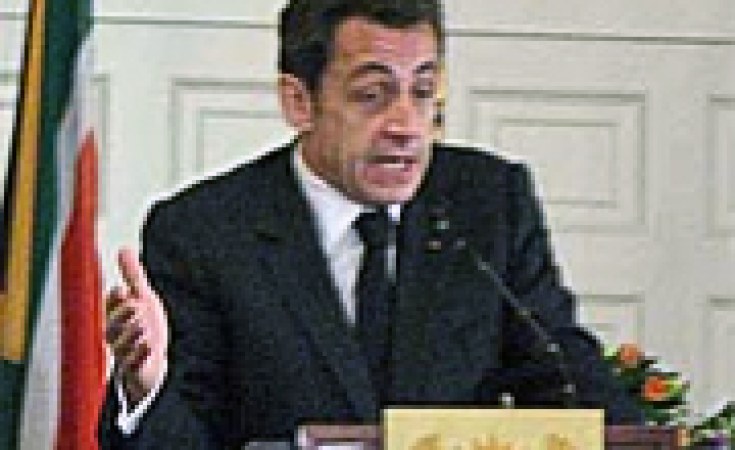Cape Town — French President Nicolas Sarkozy has announced in the South African parliament that France will overhaul and publish full details of all its military agreements with African countries.
Previewing the announcement in a news conference with President Thabo Mbeki of South Africa, Sarkozy proclaimed it as "a major turning point" in the history of France's relations with Africa. Mbeki welcomed the move, suggesting it was "part of the completion of the decolonization process."
Sarkozy is on a two-day state visit to Cape Town, during which France has signed a range of bilateral cooperation agreements with South Africa. One initiative will bring French and South African armed forces together to help the Central African Republic reform its security forces.
Addressing a joint sitting of South Africa's houses of parliament, Sarkozy said French defence agreements with Africa – which go back 60 years – "must reflect Africa as it is today and not as it was yesterday… I am not saying that the existing agreements should necessarily be scrapped and everything should be erased with the stroke of a pen. But I am saying that France wants to undertake discussions with all the African states concerned, with a view to adapting [them]… to the realities of the present, taking full account of their wishes."
He added: "Contrary to past practice our agreements must be made public in their entirety… Transparency is the best guarantee of sound and lasting relations, the best antidote to the misapprehensions and misunderstandings that are so readily spread when the ties that bind France and the Africans are discussed."
Sarkozy also said France "has no call to maintain armed forces in Africa indefinitely" and wanted its military presence to "serve first and foremost to help Africa achieve its goal of building… its own collective security arrangements. The African Union wishes to have standby forces by 2010-2012? Then that objective should also be France's objective."
The French president also announced new economic support which he said would push France's bilateral financial commitments to sub-Saharan Africa to 10 billion euros over the coming five years.
He said France would mobilize 2.5 billion euros over the period, financing nearly 2,000 companies and creating 300,000 jobs. This would be achieved through a 250 million euro investment fund; a guarantee fund endowed with 250 million euros to help African small and medium enterprises access bank credit and capital; and a two billion euro commitment to supporting the private sector.
At their news conference, Sarkozy and Mbeki also addressed the controversial speech Sarkozy delivered in Dakar last year. In one passage, he said that "the African peasant, who for centuries has lived according to the seasons, whose ideal is to be in harmony with nature, has known only the eternal renewal of time via the endless repetition of the same actions and the same words. In this mentality, where everything always starts over again, there is no place for human adventure, nor for any idea of progress."
His words unleashed a storm of criticism across the continent, but Mbeki wrote a warm letter welcoming other elements of the speech. Sarkozy said at the Cape Town news conference that Mbeki's letter "touched me deeply," principally because the South African president had "bothered to read the speech from beginning to end…"
Mbeki defended his letter, insisting the Dakar speech included "very important contributions to a global debate."
"For instance, [Sarkozy's] challenge to the African continent that the continent really needs to define its own future and that the rest of the world needs to respect that definition by Africa of its own future; but that Africa needed to stand on its feet in order to achieve that… It was correct then, it remains correct." Mbeki also said Sarkozy was right to say that Africa should not feel paralyzed by the forces of globalization, but should intervene to ensure that they served human needs.


